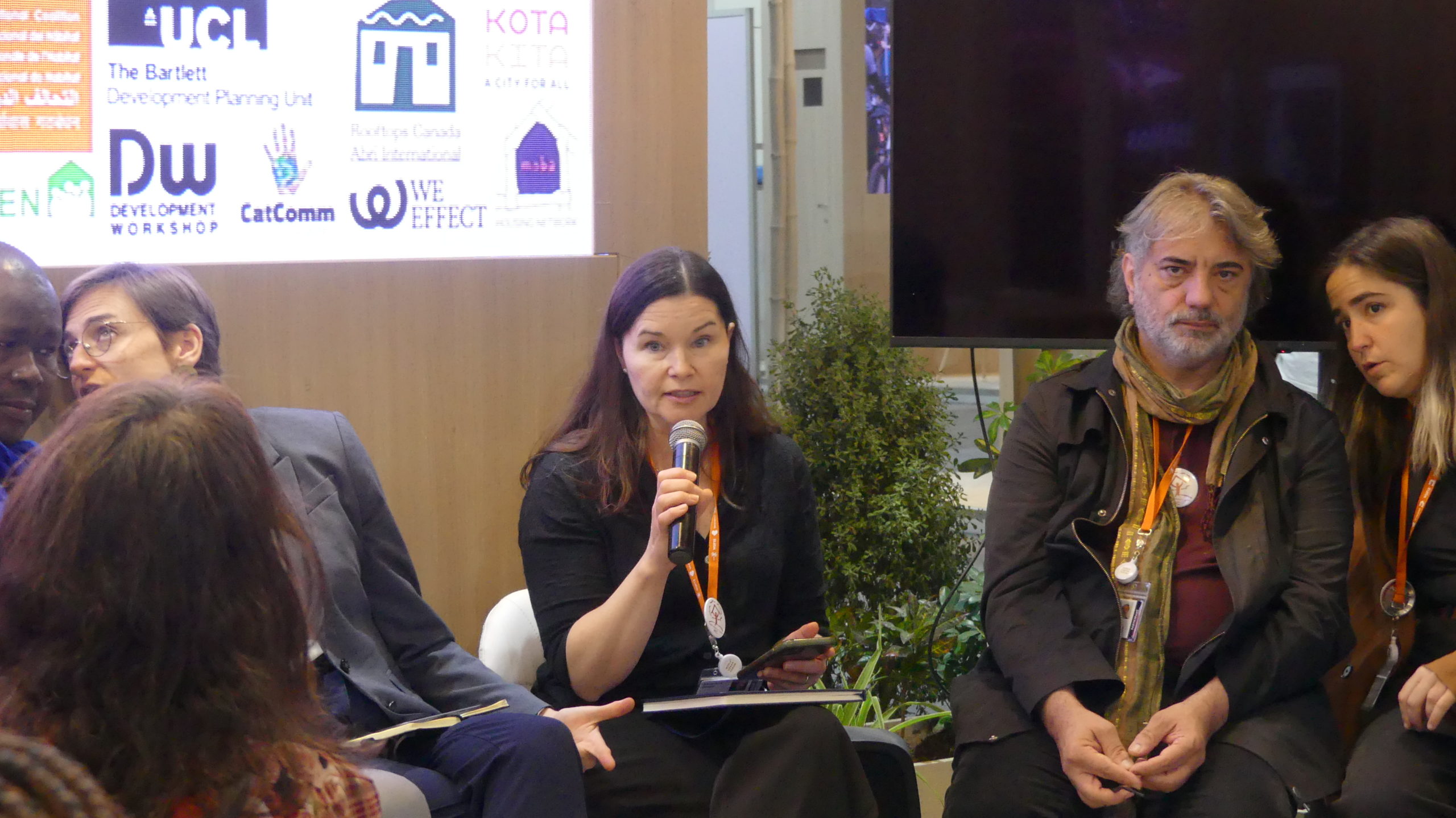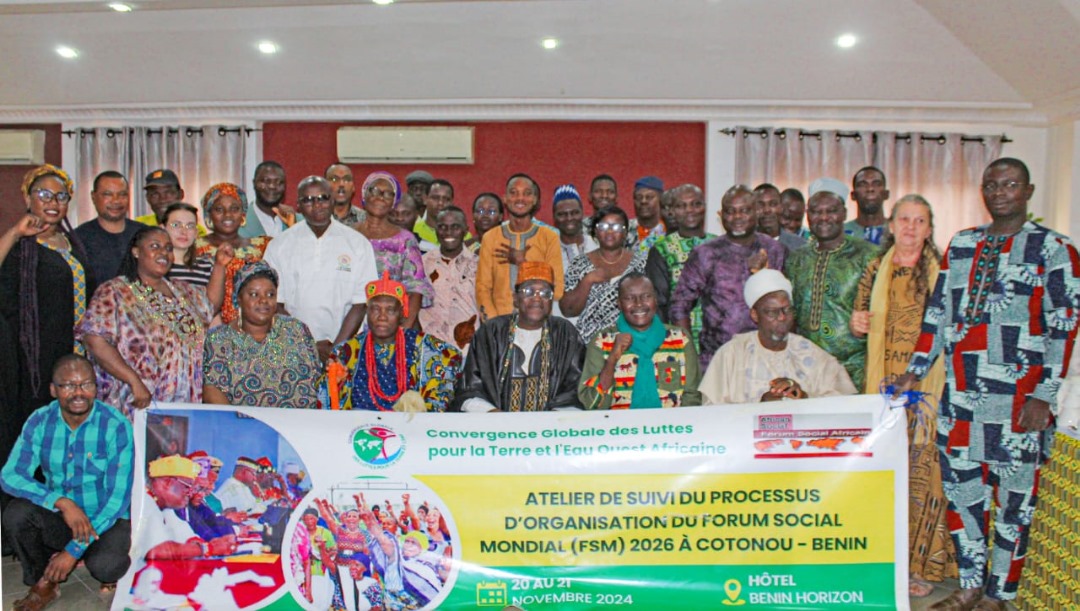What is at stake?
Between 9th and 10th of May the 2024 United Nations Civil Society Conference will be held in Nairobi, Kenya. Convened by the United Nations Department of Global Communications (DGC), the conference is held as in preparation and support of the Summit for the Future. The UN Civil Society Conference is an opportunity for civil society organizations to engage more directly in the participation process for the Summit, which will take place 22-23 September in New York, resulting in an intergovernmental Pact for the Future, with a stated ambition to “deliver a UN for people and planet in the 21st century and beyond”.
What we are claiming : opening a bottom-up, flexible and open participatory process ahead of the Summit for the Future
Ahead of the conference, Habitat International Coalition and its members join the expressions of concern of other civil society organizations and networks regarding how the conference is being organized, the extent and real impact of its outcomes, the ability to truly influence the outcomes of the Summit for the Future and, particularly, the space for truly meaningful discussion and impact in terms of civil society engagement vis a vis the United Nations in a scenario of weakening of its ability to fulfill its mandate and increasing corporate capture in which private corporations have increasing influence in decision-making and weight of funding programmes and initiatives. As the conference’s programme currently stands, it seems that limited opportunity will be given for civil society actors to have a meaningful opportunity to influence the final content of the Pact, rather than acting as a space for endorsement of its future commitments and support for future implementation.
Under this framework, the conference’s response to its stated goal to “innovate the way civil society interacts with intergovernmental processes” comes in the format of “ImPACT Coalitions” which are seen by civil society groups with concern and skepticism. Instead of opening formal and stable channels for civil society participation and consultation, these coalitions are seen as a deepening of tendencies towards “multiskakeolderism” which risk at increasing the already ongoing trend of corporate capture of the UN System and hindering the capacity of action and influence of civil society and grassroots organizations, which do not count with the same resources and mobilization capacity of other actors concerned.
Main Demands
As such, HIC joins calls for opening a bottom-up, flexible and open consultative process ahead of the Summit for the Future, under the ECOSOC framework. Moreover, we reinstate our main demands and cs regarding the current draft of the Pact, transmitted through the existing consultation process:
-
- Address root causes of systemic challenges identified, particularly inequalities and the climate crisis, introducing concrete actions needed to democratize the multilateral system and pluralize the voices of those affected through permanent mechanisms for participation, beyond consultations.
- Adopting a strong commitment to transforming the current economic models and financial architecture, shifting to models grounded in States’ individual, collective, domestic and extraterritorial human rights obligations and achieving social and environmental justice.
- Advance mechanisms for accountability and responsibilization regarding human rights violations, holding both States, corporate and private actors accountable.
-
- The 2030 Agenda and all development policy and specialized agencies must apply a human rights approach to maintain the UN’s Charter-based unitary system and the Organization’s added value. To achieve promised integration, sustainable development should be in close cooperation with Human Rights bodies, whereas the Treaty System is the System’s backbone.
- Take concrete steps to address the affordability crisis grounded on the increased financialization of essential goods and services, by supporting country in implementing mechanisms of market regulation as to ensure that essential goods and services are accessible to all
- For States and their organs to accelerate progressive realization of the human right to adequate housing, harmonized with SDG and New Urban Agenda (NUA) implementation, through approaches that actively end housing unaffordability caused by financialization of housing. These approaches should remedy the distorting effects of housing construction for speculation and not for living. Such approaches should create an environment that not-for-profit and community practices such as housing cooperatives, collective and other legitimate tenure arrangements and the social production of habitat.
- Financing for the SDGs should be aimed at localizing the SDGs and being democratically administered in close collaboration and self-management of communities in design and implementation and supported by subnational and national governments.
- Supporting the delivery of a loss and damage fund that is grounded on human rights and democratically managed with a strong involvement of the communities concerned through an implementation model that does not reproduce but rather reduces systemic inequalities.
- Urge the Security Council, the International Court of Justice and International Criminal Court to address the peace and security implications of climate change to include the practical recognition and prosecution of ecocide as an international crime, including a crime of state.
- The Security Council must ensure that peace operations are deployed with clear and prioritized mandates to deter and resist gross violations of human rights and serious violations of international humanitarian law (IHL), with exit strategies and viable transition plans as part of a comprehensive approach to sustaining peace.
Our participation at the UN Civil Society Conference in Nairobi
Following the discussion on the subject during last week’s advocacy meeting, here you can find a positioning to frame HIC staff and member participation at the conference.


